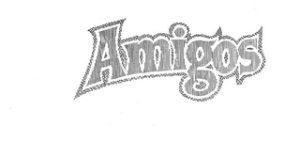 Durrset Amigos Ltd (Durrset) filed a petition to cancel Amigo Meat Distributors’ (AMD) trademark registration on the mark AMIGOS FOODS for the services of wholesale meat products distributorship.
Durrset Amigos Ltd (Durrset) filed a petition to cancel Amigo Meat Distributors’ (AMD) trademark registration on the mark AMIGOS FOODS for the services of wholesale meat products distributorship.
As a basis to cancel, Durrset asserted its common law mark AMIGOS FOODS and its registration for AMIGOS in a stylized form for “prepared tortillas, taco sauce, picante sauce (hot sauce) and taco shells” and for the services of “manufacturing and packaging food to the order and specification of others.”
The TTAB (Board) found that the parties’ marks and the parties’ goods were similar in Durrset Amigos, Ltd. v. Amigos Meat Distributors, L.P., No. 92060896 (TTAB 2017). AMD tried to save its registration by asserting that Durrset’s AMIGOS FOODS mark was extremely weak due to third party uses of AMIGOS marks in the “general area of food products.” But the TTAB found AMD’s evidence of third party use failed to demonstrate that Durrset’s mark was weak.
I’ve written previously about how third party use of similar marks can weaken rights in a trademark. The weaker a party’s rights in its mark are, the closer a defendant can come without causing confusion. The idea is that in a crowded market, if customers see many similar marks used on similar goods then customers will be conditioned to look closer to any differences in the marks, so confusion is less likely. But there are important limitations on this approach, as the AMIGOS case demonstrates.
1. Third party use should be for the same or similar services
AMD introduced 45 third party registrations and applications for marks that include AMIGO or AMGIOS for goods or services that AMD alleged were “somewhat related to food, such as food products, food distribution services, and restaurants.” AMD also introduced Internet search result showing over 90 restaurants with a name that includes the term AMIGOS.
The Board said, “the evidence falls short of showing extensive or voluminous registrations or use of AMIGOS marks coexisting for the same or similar services as those involved herein.” The board found that the third party use of the mark on food goods and restaurant services were of little relevance considering the services at issue in the cancelation proceeding.
The Board said that of all of the proposed third party uses, only two of the registrations covering retail grocery store services “are even arguably related to” AMD’s or Durrset’s services. And, only one third party use was in connection with the manufacture and packaging of food products.
In short, although AMD introduced a lot of third party use, most of it was irrelevant because it was not directed to services that were the same or similar as those at issue in the case.
2. When marks are identical, third party uses may be less effective
The Board distinguished two prior cases cited by AMD to support its argument that Durrset’s rights were weak. The Board said that parties’ marks in those cases were not identical, whereas in the present case, AMD’s and Durrset’s marks were identical, e.g. AMIGOS FOODS.
Therefore, when the parties marks are identical, it may be more difficult to rely on third party use to show weak or narrow rights and avoid confusion.